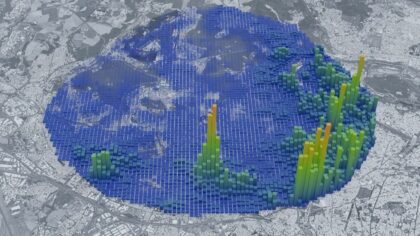DNA data storage: an archivist’s dream come true
● Synthetic DNA data storage, a technology that has been investigated since the 2010s, has reached a new stage of development with the invention of an archiving system inspired by vintage audio cassettes.
● The new innovation can organize, store and retrieve data preserved in microscopic volumes. Based on the encoding of binary data in nucleotide sequences, it achieves a density unmatched by current silicon media.
● In spite of its potential to store vast amounts of data, the technology is subject to significant constraints — slow read and write speeds and high costs — that make it unsuitable for wider public use.
Read the article
● The new innovation can organize, store and retrieve data preserved in microscopic volumes. Based on the encoding of binary data in nucleotide sequences, it achieves a density unmatched by current silicon media.
● In spite of its potential to store vast amounts of data, the technology is subject to significant constraints — slow read and write speeds and high costs — that make it unsuitable for wider public use.





Protection against quantum computing threats now within grasp for companies and institutions
Read the article

